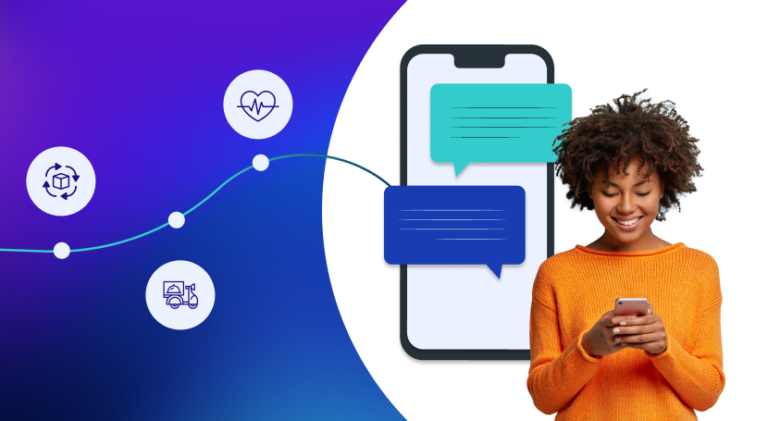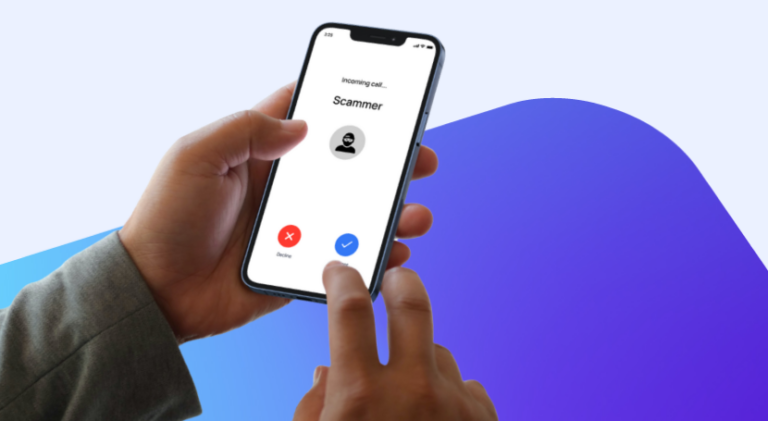Integrating voice services to Microsoft Teams utilises the cloud to support and accelerate your transition to the cloud.
In the world of Communications platform as a service (CPaaS), vendors offer organisations a cloud-based middleman platform that allows easy embedding of communications channels – like voice calls, messaging, and video – into business platforms and processes programmatically.
While enterprises are increasingly embedding more communication channels into their platforms in an omnichannel approach, SMS – yes, that traditional workhorse of the telephony layer – continues to dominate CPaaS investment. A recent Gartner report projected that while growth is expected to continue across all CPaaS segments, SMS APIs represent nearly 50% of enterprise spend.
Clearly, SMS is far from a dead technology. Businesses are finding new use cases for programmable SMS APIs every day.
Side note: if you need a quick refresher on the ins and outs of programmable SMS, we have just the thing for you.
–> Read: What is Programmable SMS and Why Businesses Should Care
But which industries stand most to benefit from implementing an SMS API programmatically in their platforms?
Here are four that we think will win big.
1. Food delivery companies
The food delivery business sector has experienced unprecedented growth thanks to the pandemic. In Southeast Asia for example, food deliveries almost tripled in 2020 as people were forced to stay at home and F&B outlets closed for dine-ins. The sector was also aided by super apps like foodpanda that already have the transport and payments infrastructure required for food delivery to scale.
When it comes to using SMS as part of their marketing, food delivery companies have a lot of options to choose from. For instance, they are able to leverage different types of text messages that drive customers to place an order.
Pair this with a deep understanding of consumer behaviour, and you have a recipe for SMS marketing success that plays on food cravings.
For instance, let’s say it’s a hot afternoon in Singapore. Food delivery businesses know that customers are craving an ice cold drink with their meal, so they can programmatically target their users at lunch-time with tailored cold drink promotions directly via SMS. There’s literally no limit to the types of special offers that food delivery businesses can target using SMS. There’s a huge opportunity for marketers in this vertical to build automated SMS campaigns using programmable SMS APIs and leverage a marketing channel that many competitors ignore.
On top of marketing, food delivery players are also able to leverage SMS at other touchpoints of the customer journey. For instance, they can use SMS to authenticate users and send reminders or notifications about their order status. With SMS APIs, it’s easy for food delivery companies to deploy SMS messaging solutions tailored specifically to their business needs.
2. Healthcare
The healthcare industry has been plagued for several years by “no-shows.”
Healthcare providers lose revenue every time there is a no show. On top of that, because there are empty slots that should have been filled, there is wastage of resources that went into prepping for the slot.
For patients, every time they fail to show up for whatever reason represents a potential decline in clinical outcomes.
Using programmable SMS APIs, a healthcare organisation can now send SMS messages automatically at preset intervals to remind them of upcoming appointments. These SMSs also can feature secure web pages where patients can log in to confirm or reschedule appointments by themselves (without having to manually call the doctor).

Get monthly nuggets of wisdom for all things customer experience in your inbox
We’ve already seen implementations of this sort on a massive scale in Singapore as public healthcare organisations relied on SMS to deliver timely reminders of COVID-19 vaccination appointments. As booster shots look set to become part and parcel of the post-pandemic era, we expect to see clinics and healthcare entities embed more programmable SMS into their patient communications to improve vaccination rates.
3. E-commerce
If food-delivery services enjoyed immense growth during the pandemic, e-commerce businesses have done at least equally as well.
Work-from-home mandates spurred demand for a plethora of products including groceries, home-office furniture, skincare products, and home makeovers. While many e-commerce stores were digital-first and focused on growing their audiences on social media and email lists, few leveraged the power of SMS fully.
This however, is changing. Already, some are using SMS at several key points in the e-commerce customer journey in a programmatic way. For example, instead of sending just a standard email confirmation upon payment, they’re sending an SMS confirmation on top of the email (just in case the email didn’t make it through to the inbox), as well as SMS notifications about delivery.
In other words, they’re leveraging the higher open-rates of SMS relative to email.
And just as food delivery services can programmatically send targeted SMS promotions, e-commerce stores can send promotions for flash sales to create a sense of urgency and scarcity and boost sales.
Finally, e-commerce players thrive on customer feedback to improve products and gain customer insights. Using SMS APIs that offer two-way messaging helps them get quick feedback from customers about their experience with the products or service. Some SMS APIs also allow e-commerce players to build and send surveys to customers in an automated fashion.
4. Supply chain logistics
While healthcare faces the problem of no-shows, supply chain logistics enterprises face a similar issue when delivering packages to a customer only to find they are not at home to answer the door.
The problem is exacerbated for cash-on-delivery orders. This is when the logistics service needs to collect payment upon delivery – which is impossible if the sendee is unavailable. In this situation, re-arranging delivery becomes a burden on the deliverer. With an SMS API, logistics companies can send automated reminders with options to reschedule package delivery ahead of time.
Programmatic SMS also opens up many other possibilities for logistics providers to improve communications efficiency between customers, drivers and employees.
These include:
- Alerting customers and staff immediately about any changes in delivery schedule
- Empowering drivers with up-to-date delivery details
- Automatically sending tracking information
- Automatically alerting customers and staff to any inventory shortages
The future of messaging APIs
Even though advanced messaging apps such as WhatsApp, Telegram, WeChat, LINE, etc. give consumers and enterprises much richer conversational features, the fact remains that SMS continues to be a resilient communication channel for most industries.
As outlined here, there are several use cases for the humble SMS at almost every touchpoint in your operations.
For this reason, it is likely that SMS will continue to coexist with other communication channels well into the future. We think many businesses in the food delivery, healthcare, E-commerce and supply chain logistics verticals will continue to see value in leveraging the SMS channel because its deliverability rate is higher than that of other Over The Top (OTT) channels. This is because the likelihood of outages on traditional telco services is lower than that of OTTs like WhatsApp, Telegram, etc.
 V K Sanjeed
V K Sanjeed 

 Girish Dharmaraj
Girish Dharmaraj 
 Rajesh Gopinathan
Rajesh Gopinathan 